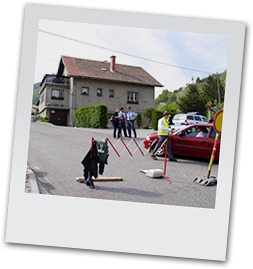Understanding the role of communication to reach your goal
Working hard on your goal distorts your perception
The harder you work for your goal, the more important it becomes. For you! Not automatically for the people you want to change. The result: you probably overestimate the power of communication.
Having too high expectations of communication leads to failure
When your expectations of communication are too high, you will fail. Before you design you communication strategy, you need a realistic judgment: can communication alone reach my goal? Or do I need other tools on the side to do the job?
Using supporting tools to reach your goal
Often you need other tools as well to change behavior:
- Rules. To forbid wrong behavior or to prescribe right behavior.
- Enforcement of rules. Without enforcement, rules are a paper tiger.
- Money. To make right behavior rewarding.
- Infrastructure. To help implement the right behavior.
What role can communication play to reach your goal?
- To understand your stakeholders and target audiences: asking questions and listening during focus groups and informal talks in kitchens, offices and pubs.
- To find your first doable and decisive step to success and to develop solutions with your stakeholders: open discussions, round tables, meetings.
- To inform and educate: speeches and discussions, leaflets with behavior instructions, signs and directions.
CHECKLIST
What's the role of communication? Before your design your strategy, ask yourself:
- Can communication alone influence my target audiences behavior?
- Do I need rules to enforce new behavior?
- Is there infrastructure for the new behavior?
- Do I need money to stimulate new behavior?
Combining communication with other instruments
This is the last Topic of Key subject 2. Want more? Go to Key subject 3:
Designing your change strategy



